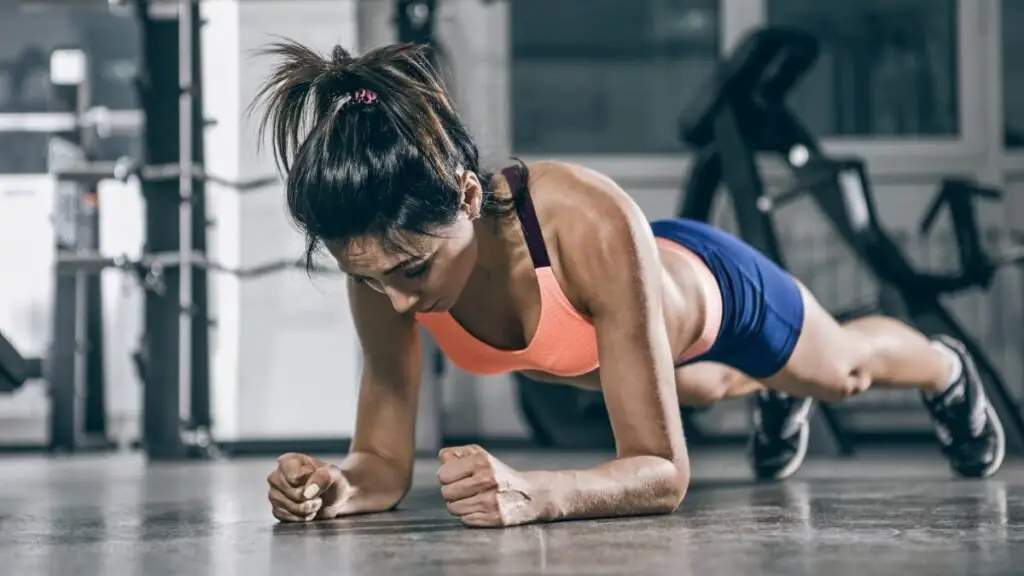Not everyone reacts the same way when they notice that a new muscle is forming in their body. Some love it: “Great, I’m getting jacked!” Some are discouraged: “Oh no, I’m getting bulky.” But everyone should know that building muscle has its benefits, both beyond and in spite of looks.
Here are seven reasons why your newfound muscle is a huge plus, both for your health and your fitness goals.
Strength and muscle size go together
The first big benefit is simply that growing muscle signals to you that you are getting stronger. Being strong makes us more athletic, more capable in everyday life, and can help prevent injuries, which I’ll get to in a moment. So if you notice some muscle growth, it means you are making progress in strength.
And yes, size and strength Are linked. We’ve all met people who are stronger than they look, and this has led to the myth that there are different “types” of muscle or strength, as if bodybuilders’ muscles are full of water or fat instead of contractile tissue. (I’m not sure where this myth comes from, but it’s absolutely not true. Muscles are muscles.)
Think of it this way: the larger the muscle, the more it can contract. But what you Do With this muscle it’s a question of skill. Gymnasts are strong, but not every strong person can do a backflip. Boxers are strong, but not every strong person will be able to deliver a knockout punch.
When you train to build muscle mass, you will also end up increasing your strength. And if you train to build strength, there’s a good chance you’ll end up increasing your muscle mass too. This doesn’t mean you have to become huge if you don’t want to be; Your diet is the most important thing This determines whether you look “bulky” or not. But it’s reasonable to expect at least a small muscle gain every time you challenge your body to get stronger and fitter.
Muscles burn more calories
The effect of muscle on our metabolism is one of the most commonly cited benefits of building muscle, and honestly, I think it’s one of the least important. But let’s delve deeper because I know you’re wondering about this.
Yes, the more muscle your body has, the more calories you burn, even at rest. Muscle is a metabolically “expensive” tissue that uses much of your food as fuel, meaning you can eat more food. Not only will this allow you to enjoy more food, but it will also help you improve your diet! The more you burn, the better you can eat. You have the calorie budget to get plenty of vitamins, proteins, fiber and other beneficial nutrients.
Every pound of muscle you gain will do the trick Burn about 10 extra calories every day– So if you gain 10 pounds of muscle over the course of a few years of strength training, you’ll burn 100 additional calories every day. This may not add much to your daily calorie consumption, but it is something. What’s less appreciated is the fact that the more muscle you have, the more likely you are to do harder workouts even more Calories.
I now burn about 500 more calories each day than I did years ago when I was sedentary, and I certainly haven’t gained 50 pounds of muscle. But the more muscle you have, the more work you can do, and that snowballs. Remember, Exercise is good for your healthThe more of these your body can handle, the healthier your heart and metabolism can become.
Muscle has a positive impact on your health, even if you don’t lose weight
It is often said that losing weight is beneficial to our health, especially for people with diabetes, other health problems and/or a high BMI. However, losing weight can be difficult, and building muscle can produce the same health results whether you end up losing weight or not.
For example, this study found that more muscle mass is associated with lower mortality rates, less body fat and a lower likelihood of developing diabetes. People with high BMI and high muscle mass were healthier in this study than people with similarly high BMI but low muscle mass.
So even if you build muscles not Since body fat is reduced, it still helps you live healthier. Researchers also speculate that some of the health consequences we associate with high body fat may actually have more to do with low muscle mass.
Muscles keep us fit as we age
It is dangerous to be weak and frail as you age. Extreme loss of muscle mass is called sarcopenia and is a known factor in all sorts of things you want to avoid. The less muscle mass you have, the greater your risk of falls, broken bones, inability to live independently, and generally the worse your health. Older adults with less muscle are They are more likely to die if they have conditions such as kidney disease or heart failure, and may have a harder time getting through treatments such as chemotherapy.
This isn’t just a problem for the gray-haired masses: After the age of 30, we lose 3-8% of our muscle mass every decade, If We don’t train to keep it. After the age of 60, muscle loss usually accelerates – but the same applies here: people who do strength training tend to retain their muscles. If you start strength training when you’re older, you might even be able to bulk up more Muscle mass than in your youth.
Even if you haven’t reached age 30 yet, you should expect to build muscle that you can use later. Someone who is strong at age 25 builds the muscles (and the habits that make them exercise!) so that they don’t become frail at age 75.
Strength training improves bone density
In addition to sarcopenia, osteoporosis (a loss of bone mineral density) also contributes to the risk of devastating bone fractures and loss of independence, especially as people age. Muscle loss and loss of bone density are referred to as “Aging of the musculoskeletal system“, a phenomenon that can be at least partially avoided through strength training.
Bones become stronger when put under strain, which is why “weight-bearing exercises” are often recommended for people at risk of osteoporosis. This is not specifically strength training, but rather activities in which you support your own weight. Walking, running and jumping are stressful. (Swimming is not strenuous).
But strength training does also improve bone density. Unless you’re good at running or even jumping on your hands (which, I must note, requires a lot of strength and muscle), it’s a good way to put healthy stress on the bones of your upper body Do lots of resistance training. This may include training with barbells, dumbbells, resistance machines, or other equipment.
Strong muscles can prevent injuries
Injury prevention is a large and unclear topic, so it is difficult to provide concrete evidence for strength training generally reduces injuries generally. But ask any good coach or good physical therapist and they will tell you that they encourage their players and patients to build strength to prevent and recover from injuries when they occur.
Strength training ensures stronger muscles, bones and connective tissue such as tendons. In a sporting context, stronger athletes appear to be more resistant to injury. And even in everyday life—say, someone might slip and fall—strength and agility make it easier to avoid unexpected obstacles. You may also find it easier to catch yourself when you start to fall.
There is also evidence that exercise, including strength training, is a useful tool Coping with back pain, arthritisand other conditions.
Muscles make you better at running, yoga and other activities
Maybe you enjoy exercising, but you’re still a little skeptical about the benefits of strength training in particular. You just want to run the trails, take a barre class, or maybe do some yoga. Well, muscles help with these things too.
For example, if you are a runner, Strength training helps prevent injuries (including the nagging “overuse” injuries like shin splints and sore knees). More muscle in the legs also means a better ability to run up the hills of these trails, dodging rocks and tree roots on the way down. Stronger runners are generally better runners.
Or let’s say you’re more interested in yoga. More strength and muscle will help you perform more advanced poses, perform the intermediate poses more confidently, and perform the easy poses with real ease. Or to put it another way: No one thinks in the middle of a yoga class, “I wish I had less core strength.”
You have the idea. Climbing is more fun when you have more upper body muscles. Cycling is more fun when you have strong legs. Even outside of the formal sports world, muscle strength will help you carry mulch in your garden, load your suitcase over your head without endangering your fellow travelers on the plane, and help a friend move without spending the next two days on the couch spend and pop Advil. So when you find your body gaining a little muscle, just think about all the possibilities that open up to you – not just what it looks like.





